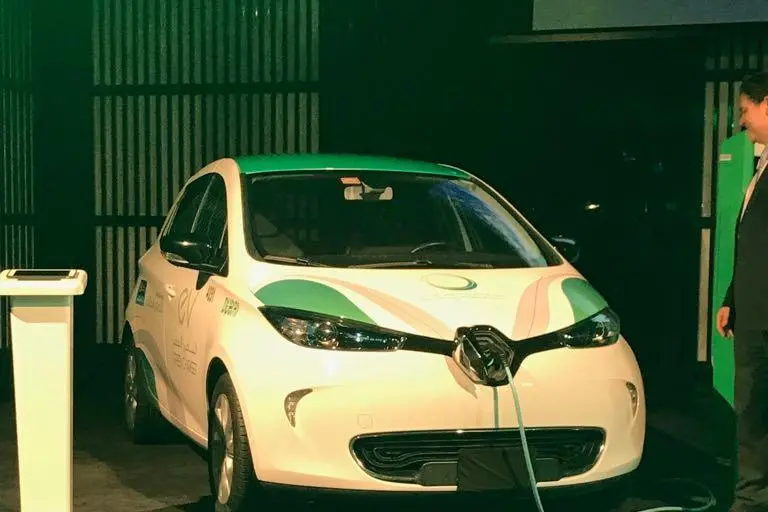PHOTO
Dubai has announced a new package of incentives to encourage the usage of electric cars in the emirate, in a bid to support a national plan aimed at drastically increasing the emirate’s use of clean energy from a 7 percent target in 2020 to 75 percent by year 2050.
Mohammed Al Tayer, CEO of Dubai Electricity and Water Authority (Dewa) said that it has collaborated with Dubai’s Roads and Transport Authority (RTA) and the Supreme Council of Energy to provide a number of benefits that will be in place until 2019, with a view to boosting take-up of electric vehicles (EVs).
These include providing free public charging for cars, free vehicle registrations and renewals and up to 200 free, dedicated parking locations for electric cars. Free public charging points are already in place.
“I am pleased to announce this initiative for electric vehicles in Dubai… it is made in order to achieve the goals of the national agenda of the Emirate’s vision to create a sustainable environment in terms of air quality…and increase reliance on clean energy,” Al Tayer said at a press conference held within the Burj Khalifa on Sunday.
He said the incentives package will help Dubai to grow the number of electric and hybrid vehicles on the road to 10 percent in 2030, up from the 2 percent expected to be achieved in 2020. However, he said the new package is only applicable for electric cars, not hybrid vehicles.
“There are challenges in electric vehicles. That is why we are offering more incentives in order to promote this initiative,” Al Tayer said. “It is a challenge when we don’t see electric cars in the market and we want to penetrate the market,” he added.
There are currently only four car makers that offer EVs in the United Arab Emirates: Toyota, BMW, Renault and Tesla. The RTA announced in February that it had signed an agreement to buy 200 electric vehicles from Tesla, and last week said that it is planning to introduce 50 of these into its limousine fleet.
Al Tayer said he hopes the incentives will encourage more international car makers to bring EVs into Dubai. German car maker Volkswagen (VW) is currently considering proposals on supplies of cobalt, a vital component of rechargeable batteries, Reuters reported last week, which shows a potential interest from the world’s largest automaker to enter into the EV business.
Electric vehicles use rechargeable batteries containing cobalt, which enhances energy density and extends battery life, according to a Reuters report. The product allows automakers to offer guarantees of battery life between eight and 10 years.
Al Tayer said he hopes the new initiative will help to reduce the country’s carbon footprint by significant 16 percent by 2021. He said Dewa had started providing public EV chargers in the second quarter of 2014, and that it aims to increase the number of stations to 200 by next year.
The UAE is the Arab world’s second-biggest economy and also has one of the highest per capita carbon footprints in the world, according to the International Energy Agency. However, in recent years it has introduced a number of initiatives designed to reduce CO2 emissions, such as drawing up mandatory green building codes, minimum efficiency standards for appliances and reforming fuel tariffs. It has also installed several solar parks and begun the Shams Dubai initiative, allowing solar panel installers to sell power generated back to the grid.
© Zawya 2017





















